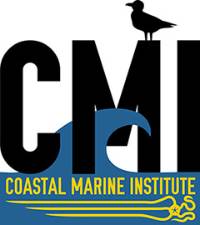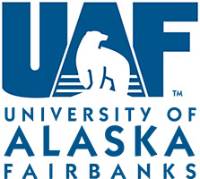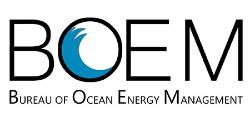Coastal Marine Institute
The University of Alaska Coastal Marine Institute (CMI) was established in 1993 through a cooperative agreement between the University of Alaska and the US Department of the Interior Bureau of Ocean Energy Management (BOEM) to study coastal topics associated with the development of natural resources in Alaska's outer continental shelf. Under this cooperative program, BOEM taps the highly qualified scientific expertise at the University of Alaska to
- Collect and disseminate environmental information needed for OCS oil, gas, and marine minerals decisions
- Address local and regional OCS-related environmental and resource issues of mutual interest
- Strengthen the partnership between BOEM and the states by addressing OCS oil and gas and marine minerals information needs
- Fund projects that inform across disciplines including fisheries, biomonitoring, chemical and physical oceanography, and oil biodegradation
Annual Research Reviews
2026 CMI Annual Research Review
Alaska Marine Science Symposium, Anchorage
January 26th - 30th, 2026
Monday, January 27, 2025 • 9 am - 5 pm
2025 CMI Annual Research Review Meeting agenda (PDF)
Watch recordings from the 2025 Annual Research Review (on the AMSS website)
Monday, January 29, 2024 • 8 am – 12 noon
2024 CMI Annual Research Review Meeting agenda (PDF)
Watch a recording of the 2024 Annual Research Review (Zoom video)
Passcode: $8e@p6&s
Wednesday, January 18, 2023 • 9 am – 3 pm
2023 CMI Annual Research Review Meeting agenda (PDF)
(revised 1/17/23)
Watch a recording of the 2023 Annual Research Review (Zoom video)
Passcode: =F9+.JVL
Wednesday, January 19, 2022 • 9 am – 2pm
2022 CMI Annual Research Review Meeting agenda (PDF)
Watch a recording of the 2022 Annual Research Review (Zoom video)
Passcode: %?g.T6Rk
Thursday, January 21, 2021 • 9am – 2 pm
2021 CMI Annual Research Review Meeting agenda (PDF)
Watch a recording of the 2021 Annual Research Review (Zoom video)
Passcode: Fm3Fi&iK
History
The US Department of the Interior Bureau of Ocean Energy Management administers the outer continental shelf (OCS) natural gas, oil, and marine minerals program. The program oversees the safe and environmentally sound leasing, exploration, and production of these resources within our nation's offshore areas. The Environmental Studies Program (ESP) was formally directed in 1978, under Section 20 of the OCS Lands Act Amendments, to provide information for decisions involving the planning, leasing, and management of offshore exploration, development, and production. The research agenda is driven by issues, concerns, or data gaps identified by federal decision makers and state and local governments who participate in the process. ESP research focuses on the following broad issues associated with the development of OCS natural gas, oil, and minerals:
- What are the fates and effects of potential OCS-related pollutants (e.g., oil, noise, drilling muds and cuttings, products of fuel combustion) in the marine and coastal environment and atmosphere?
- What biological resources (such as fish populations) exist, and what resources are at risk? What is the nature and extent of the risk? What measures must be taken to allow extraction to take place?
- How do OCS activities affect people in terms of jobs and the economy? What are the direct and indirect effects on local culture? What are the psychological effects of the proposed OCS activities?
BOEM developed the Alaska regional Coastal Marine Institute (CMI) program, in coordination with the University of Alaska, to ensure local cooperation with the state and localities potentially affected by resource exploration and extraction on the outer continental shelf.
Funding
The Coastal Marine Institute solicits project ideas and proposals annually. Please watch for our next opportunity in fall of 2023.
Contact
Katrin Iken, Director
Phone: (907) 450-9202
kbiken@alaska.edu
Barbara Wadlinger, Program Manager
uaf-cmi@alaska.edu









